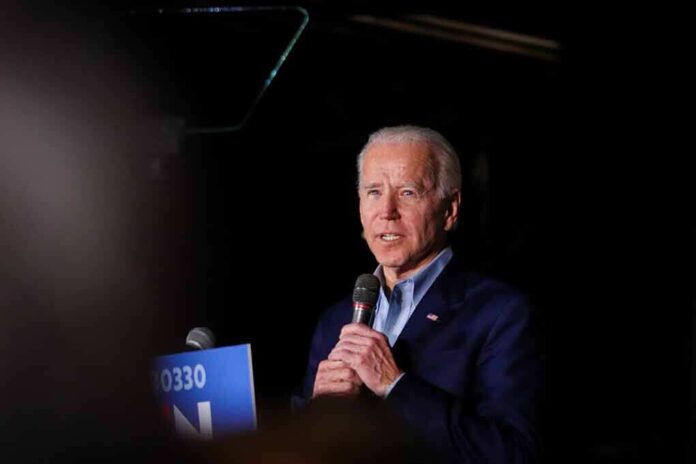
At a Glance
- U.S. citizenship applications are being approved at the fastest rate in a decade
- Nearly 4 million immigrants have gained U.S. citizenship since the 2020 election
- The average processing time for citizenship applications has been reduced from 11.5 months in 2021 to 4.9 months
- Naturalized voters account for about 10% of the U.S. electorate and broadly skew Democratic
- Critics argue this could influence the presidential election, especially in swing states with narrow margins
Accelerated Citizenship Process Raises Questions
The Biden-Harris administration has significantly increased the speed of processing immigrant naturalizations, approving citizenship applications at the fastest rate in a decade. This surge in efficiency has led to nearly 4 million immigrants gaining U.S. citizenship since the 2020 election, with an additional 9 million people eligible to naturalize.
The Department of Homeland Security maintains that this acceleration is not politically motivated. Spokesperson Naree Ketudat stated, “The Department of Homeland Security ‘does not take actions based on electoral politics or upcoming elections. Period.'” However, the timing of these actions has sparked a complex debate about their potential influence on the closely contested 2024 election outcomes.
Impact on Swing States and Voter Demographics
The impact of these new citizens on battleground states remains uncertain, but states like Georgia, Arizona, Nevada, and Pennsylvania have significant numbers of new voting-age naturalized citizens. A poll found that 97% of naturalized citizens in swing states and California are likely to vote, with 76% saying they definitely will vote.
“In this particular election year, this bureaucratic efficiency is so politically fraught,” said Xiao Wang, co-founder of Boundless, a company that helps people navigate the immigration system and analyzes trends.
Naturalized voters, who account for about 10% of the U.S. electorate, broadly skew Democratic. This trend has not gone unnoticed by political analysts and critics who argue that the accelerated citizenship process could potentially influence the presidential election, especially in swing states with narrow margins.
Biden Administration’s Efforts to Reduce Backlog
The Biden administration attributes the increased speed of naturalizations to efforts aimed at reducing a backlog of applications that grew during the Trump administration and the pandemic. These efforts include prioritizing naturalization applications, accepting online applications, increasing hiring, and rolling back Trump-era policies.
The average processing time for citizenship applications has been reduced from 11.5 months in 2021 to 4.9 months this fiscal year. U.S. Citizenship and Immigration Services (USCIS) aimed to cut the backlog of applications by increasing capacity, improving technology, and expanding staffing, reducing the backlog from 943,000 at the end of 2020 to 408,000 by September 2023.
Potential Impact on the 2024 Election
As the 2024 presidential race between Kamala Harris and Donald Trump presents clear contrasts on key issues such as taxes, abortion, immigration, global alliances, climate change, and democracy, the influx of new citizens eligible to vote could play a significant role in shaping the outcome.
With thousands of immigrants becoming U.S. citizens weekly and gaining eligibility to vote in the upcoming presidential election, the potential impact on battleground states remains a topic of intense speculation and debate. As both campaigns gear up for a closely contested race, the role of newly naturalized citizens in shaping America’s political future will undoubtedly be a focal point of discussion in the months to come.
Sources:
US Approving Citizenship at the Fastest Speed in Years
Migrant Citizenship Speeds Up Under Biden Ahead of Election
Harris and Trump offer worlds-apart contrasts on top issues in presidential race
Harris and Trump: Compare where they stand on key issues
Trump vs. Harris: Where they stand on issues that matter to voters












